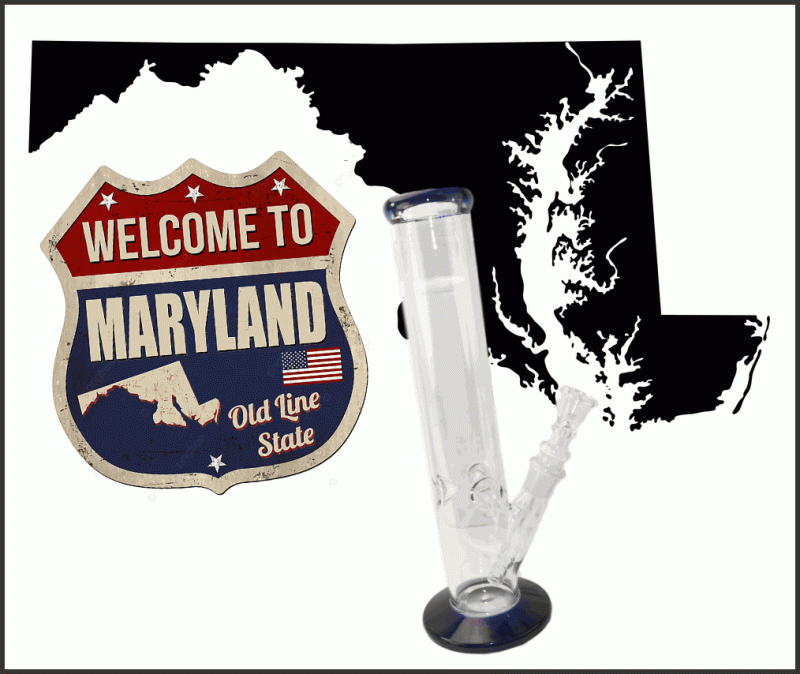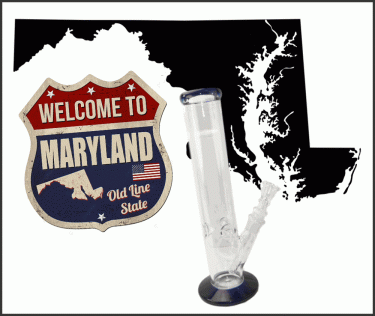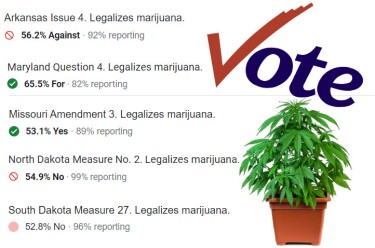Governor Wes Moore of Maryland signed a bill, Senate Bill 516, which will regulate the commerce of adult-use cannabis. This paves the way for licensed sales of recreational marijuana to start in the state on July 1 of this year. State legislators approved the bill in April following lengthy negotiations that covered topics like social equity and taxation.
During the signing ceremony for the legislation, Moore expressed that the new law would guarantee the fair distribution of opportunities to introduce recreational cannabis in the state. He acknowledged the damage caused to low-income and communities of colour by the past criminalization of marijuana.
He emphasized the importance of ensuring that the legalization of marijuana now benefits these communities in a significant way.
Maryland Voters Legalized Cannabis In November
Question 4, a state referendum that gained almost two-thirds of the vote in November, legalized recreational marijuana in Maryland. The bill signed by Moore paved the way for enacting this legalization. It allows individuals aged 21 and over to possess a maximum of 1.5 ounces of cannabis and cultivate up to two cannabis plants at home.
The passing of Senate Bill 516 also creates a structure for regulating recreational marijuana in Maryland. The legislation involves the formation of a new division for regulation and enforcement under the existing Alcohol and Tobacco Commission. The division will be renamed the Alcohol, Tobacco, and Cannabis Commission.
Below is a summary of the Maryland cannabis regulation legislation, approved by legislators as SB 516 and HB 556:
-
A tax rate of 9% will be applied to recreational cannabis sales, while medical marijuana sales will be excluded from this tax.
-
A community reinvestment fund will receive 35% of the revenue from marijuana taxes. A Cannabis Public Health Fund, Counties, and a Cannabis Business Assistance Fund will each receive an additional 5%.
-
The newly established Maryland Cannabis Administration will regulate the program.
-
Existing medical cannabis dispensaries will transition to dual licensees upon payment of the required fee once legalization takes effect on July 1.
-
By July 1, 2024, regulators will begin approving additional licenses for marijuana businesses.
-
Ultimately, there will be a licensing limit of 300 dispensaries, 100 processors, and 75 growers. Smaller micro businesses will have a limit of 100 cultivators, 10 dispensaries, and 100 processors.
-
The State Department of Commerce will establish a Capital Access Program to promote industry opportunities for social equity applicants and provide low-interest loans.
-
The sale of delta-8 hemp products on the broad market will end, and intoxicating cannabis products must be sold through licensed marijuana businesses.
-
Localities cannot levy additional taxes or prohibit existing medical cannabis businesses that convert to dual licenses from operating in their region.
-
Medical cannabis patients can grow a maximum of four plants for personal use. They will not be required to pay taxes on medical marijuana products.
-
New dispensaries will not be permitted within 500 feet of childcare facilities, schools, playgrounds, libraries, recreational centres, or public parks. They must also be at least 1,000 feet apart from each other.
-
The conversion fee for existing medical cannabis businesses to become dual licensees is 10% of gross income from growers and processors, capped at $2 million, and 8% of gross revenue for dispensaries at the same cap.
-
Under the new law, a single business entity cannot own more than four dispensaries.
-
At least 25% of dispensary shelf space must be reserved for cannabis products from social equity licensees.
-
There will be a 10-license cap on microbusinesses, and there is no provision for regulators to authorize more in the future.
-
On-site consumption facilities will not permit smoking indoors, but outdoor patios at licensed facilities will be available for smoking.
-
Dispensaries will be permitted to repackage products under the new law.
-
Regulators are required to create rules for internet marijuana sales by July 2025.
New Law Includes Social Equity Provisions
The new law in Maryland aims to promote equity in the cannabis industry and provide ownership opportunities for those negatively affected by marijuana prohibition. The first licenses granted will be reserved for social equity applicants, who must meet specific qualifications to be eligible.
The applicant must have at least 65% ownership by an individual who has lived in a "disproportionately impacted area" for five of the last ten years or attended a public school in such an area. How MSOs like Nature's Medicines will work with the social equity applicants in Maryland will be similar to how partnerships work in other states like Massachusetts and the newly formed New York market.
Starting in 2025, Maryland will allocate $5 million annually for grants to existing medical cannabis dispensaries that form "meaningful partnerships" with social equity applicants. These partnerships must include training, mentorship, or shared business space. This program encourages collaboration between established businesses and social equity applicants to promote a more equitable and diverse cannabis industry.
Democratic Del. C.T. Wilson stated during a March committee hearing for Senate Bill 516 that the bill establishes a new Office of Social Equity within the cannabis division. The aim of encouraging participation from individuals belonging to communities that were disproportionately affected by the war on drugs.
The new law provides for the automatic expungement of past convictions for activities that are now legal. Individuals currently serving sentences for such offences are eligible for resentencing. Those with convictions for possession with intent to distribute can petition for expungement three years after completing their sentences.
At the start of the year, some portions of the referendum became effective. Possessing up to 1.5 ounces of cannabis was reclassified as a civil offence, carrying a penalty of a $100 fine. For possessing more than 1.5 ounces but less than 2.5 ounces, the sentence was increased to a $250 fine.
Conclusion
Maryland is making significant efforts to guarantee that the marijuana sector is regulated, egalitarian, and socially responsible as it gets ready to legalize marijuana for recreational use. The bill not only creates a framework for the control of marijuana used for recreational purposes but also advances social fairness and helps make up for past wrongs.
Maryland's legalization of cannabis is serving as a model for other states to follow, thanks to the automatic expungement of prior convictions and a focus on empowering communities affected by the drug war. Maryland is setting the bar high regarding focusing on fairness, justice, and social responsibility as the business develops further.








